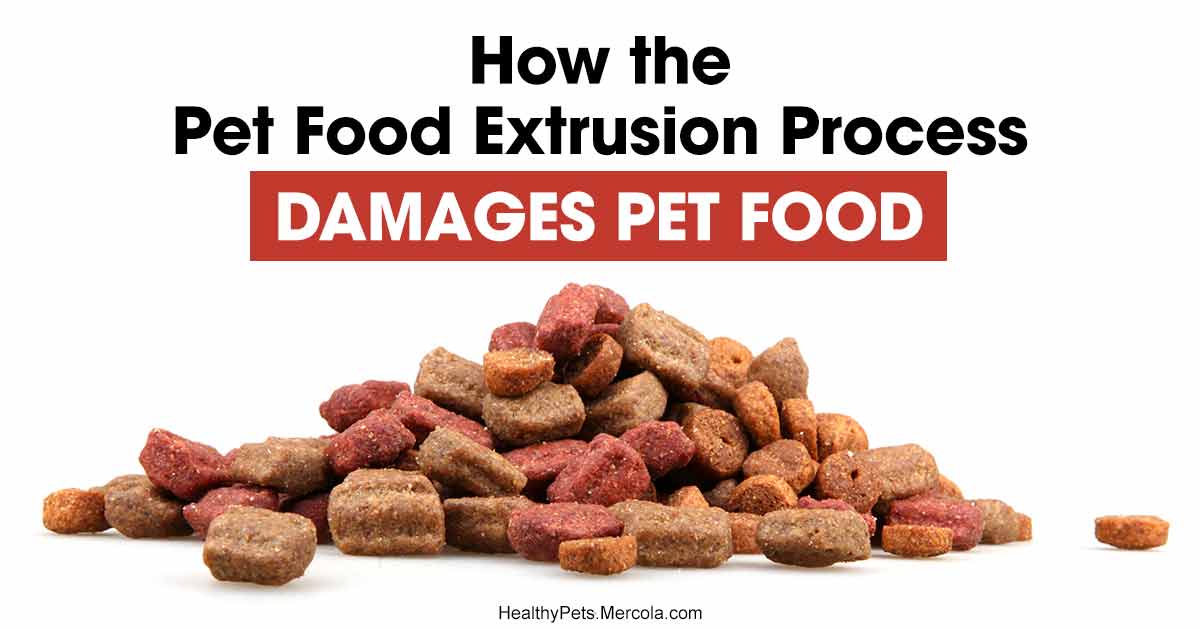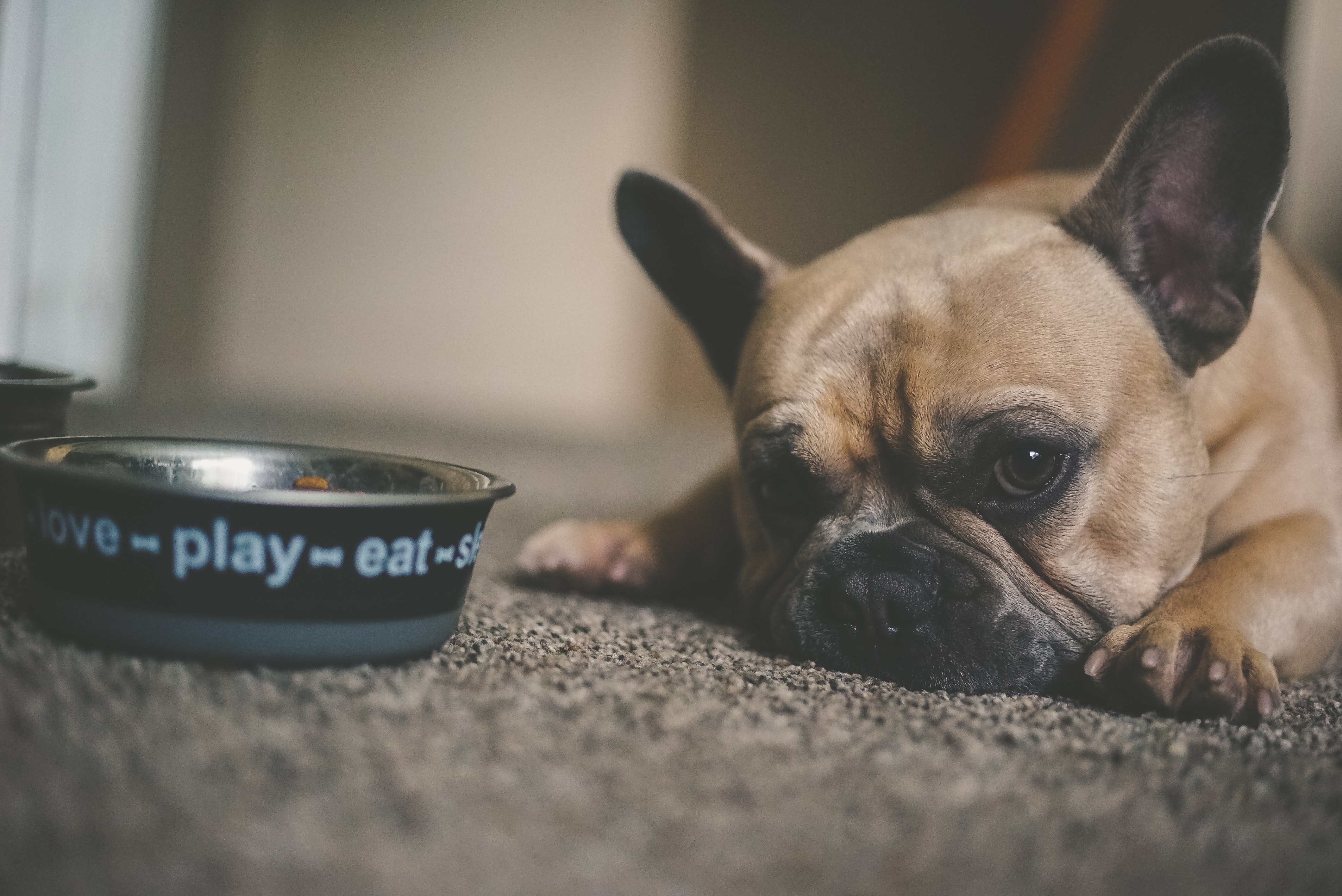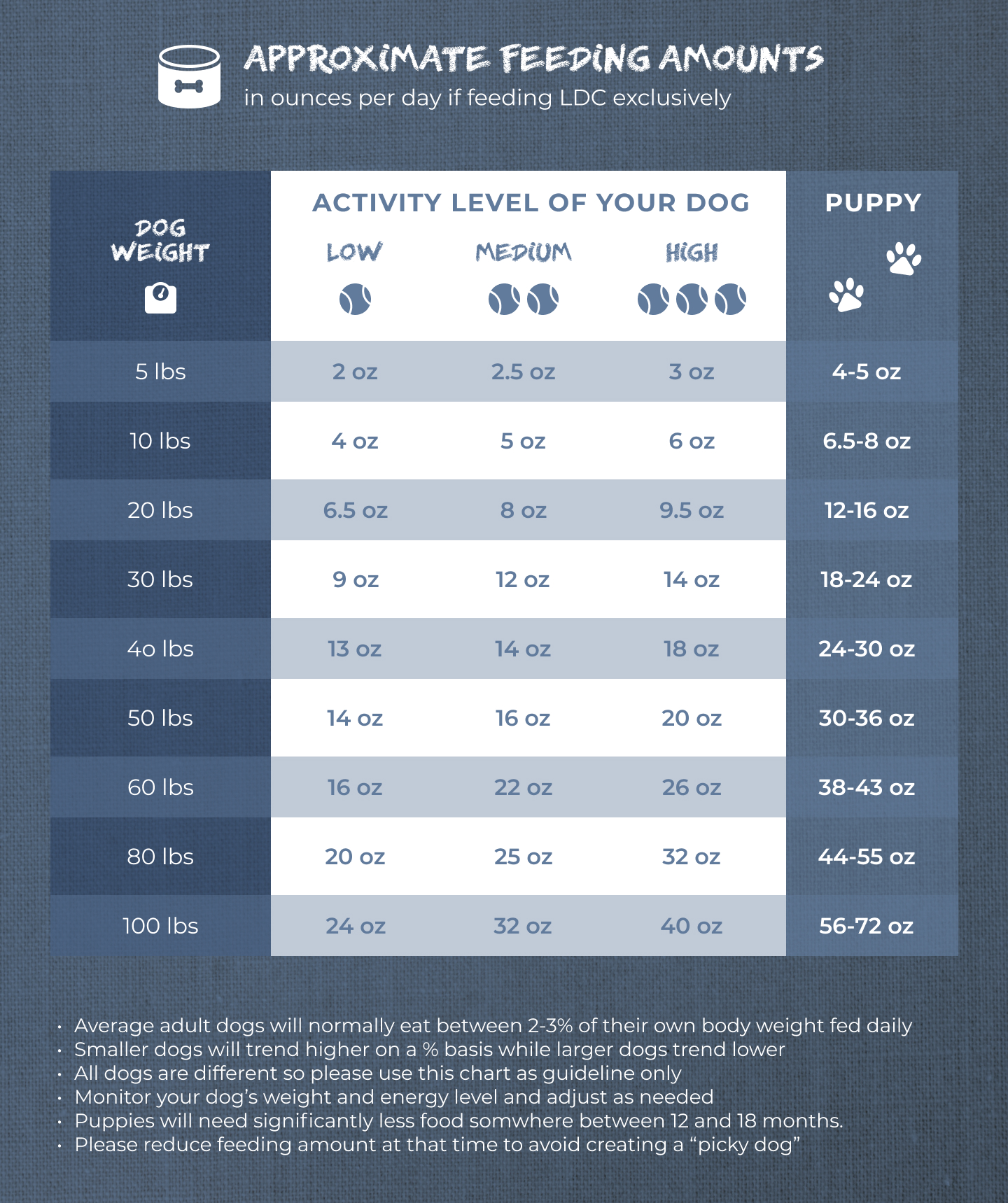Our last blog was about rendering plants. This is the first step in the process of making dog kibble. Rendered raw materials are cooked at high temperatures (between 280 and 300 degrees Fahrenheit) for 60 minutes. This is performed in an attempt to destroy existing bacteria and viruses, but it does nothing to eliminate mold, pesticides, and other toxins.
The cooking of kibble at high heat for extended periods of time damages amino acids in proteins and leads to the formation of heterocyclic amines. Cooking starches the same way creates acrylamides. Both of these by-products can lead to cancer, inflammation, kidney damage, and neurodegenerative diseases. Dogs fed dry kibble are exposed to these toxins on a daily basis. Healthy foods should be gently cooked for as little time as possible. They should have a high moisture content for ease of digestion.
Rendering is just the first stage of heavy processing that makes dry kibble. The end result doesn’t resemble anything close to real food.
Most dog foods are made by the extrusion method, which was originally created to make breakfast cereal. That puffed up product should look familiar if you eat Cheerios or any crunchy breakfast cereal.
At the manufacturing plant the ingredients go through several stages:
 1. A hammer mill grinds each ingredient into a uniform size.
1. A hammer mill grinds each ingredient into a uniform size.
2. Dry and wet ingredients are mixed along with hot water and steam. This is called pre-conditioning. This is the first time the plant starts to cook the material. Remember that many of the raw materials from the rendering plant have already been subjected to high heat and pressure.
3. The dough is then fed into the extrusion machine. The walls of the tubes are heated to high temperatures and high pressure as the dough passes through. It is squeezed out the other end and cut into shapes. As the dough hits the air and the pressure is released, it puffs up. The kibble is hot and soft at this point.
4. Next is the enrobing process. The hot kibble is dried and sprayed with synthetic vitamins, minerals, and flavor enhancers. The flavor enhancers are typically rendered liquid fats or powders.
5. The kibble is dried again, weighed, and bagged.
Because dried dog food has a 10 to 12 month shelf life, preservatives are needed to prevent mold, bacterial growth, rancidity, and oxidation. They appear on the bag as BHT, BHA, sucrose, sorbic acid, potassium, and calcium sorbates. Never store kibble in an open bag or in a moist environment like a basement, as this is a surefire way to grow mold and for the food to turn rancid. Mold and toxins in kibble can cause anemia, cancer, as well as liver and kidney damage. Even grain free kibble formulas can become contaminated.
After this series of processes, Kibble has become a commercial product that is virtually lifeless. It has been cooked at high temperatures, subjected to pressurized steam, dried, and ‘fortified’ with synthetic vitamins and minerals. This fortification is needed since the proteins have been denatured, vitamins and minerals have been destroyed, enzymes have been made inactive, and all the micro flora needed for digestion have been killed. That does not even begin to address the questionable quality of the raw ingredients used in the first place.
 I often ask people what they would think if their medical doctor told them to by-pass all fresh fruits and vegetables in the grocery store and go to the ‘People Chow’ aisle. Imagine having to select one heavily processed ‘chow’ to eat every day for the rest of your life. It seems absurd, yet this is what we do to our dogs.
I often ask people what they would think if their medical doctor told them to by-pass all fresh fruits and vegetables in the grocery store and go to the ‘People Chow’ aisle. Imagine having to select one heavily processed ‘chow’ to eat every day for the rest of your life. It seems absurd, yet this is what we do to our dogs.
There is a healthy, growing trend of people seeking to avoid processed foods for themselves and their families. Kibble can never provide the same nutritional value as real food. Synthetic vitamins and minerals are not absorbed the same as those found in whole foods, where the synergy of naturally occurring phyonutrients and phytochemicals aid in the absorption process.
Please use common sense when selecting your dog food. Resist marketing and embrace Mother Nature. Dry kibble is convenient but not a healthy long-term choice for your dog.


 Is your dog a picky eater?
What to do when your dog won't eat
Is your dog a picky eater?
What to do when your dog won't eat







